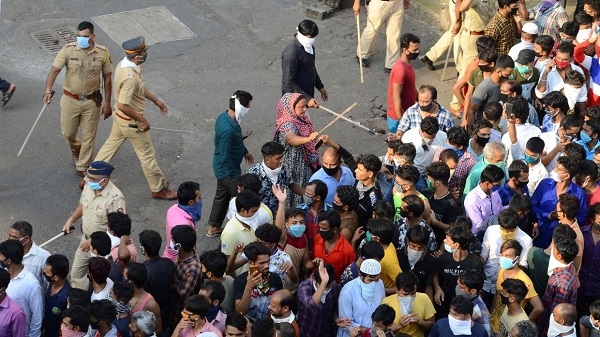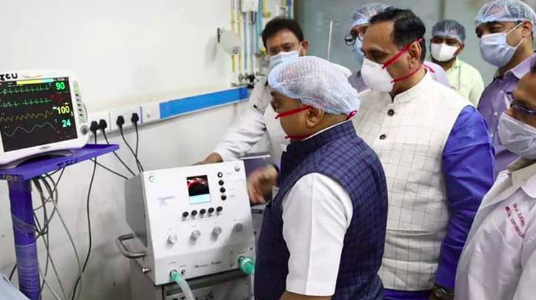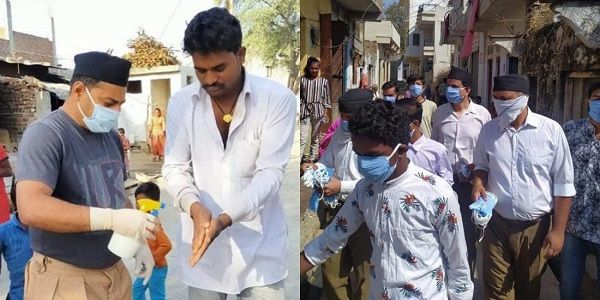Media ignores facts target Indian govt amid Corona
Total Views | 66
While India has been striving a long way to protect its people off the Coronavirus effects, some of the International media houses and news agencies have deliberately been targeting the BJP-led government for its failure to tackle the crisis from poor people's view-point. Well, here are a few media reports noting India's poverty situation more severe than actually it is.
AlJazeera : As economic and human toll of lockdown deepens, criticism mounts over lack of adequate planning before the decision.
Coronavirus lockdown, the world's largest, is wreaking havoc on India, where more than a quarter of its 1.3 billion people live below the poverty line. "I would firstly like to seek forgiveness from all my countrymen," Modi said in his nationwide radio address. The unprecedented lockdown has stung millions of poor in the world's second-most populous country, leaving many hungry and forcing jobless migrant labourers to flee cities and walk hundreds of kilometres to their native villages.

Rickshaw pullers, itinerant produce peddlers, maids, day labourers and other informal workers form the backbone of the Indian economy, comprising about 85 percent of all employment, according to official data. Many buy food with the money they make each day and have no savings to fall back on. "Thousands of migrants workers have been forced to leave their rented homes as they are unable to pay rent. It is important that the government intervenes and provides them money for their rent immediately," opposition leader Rahul Gandhi said in a letter to Modi.
In capital New Delhi, tens of thousands of people, mostly young male day labourers but also families, fled their homes as the daily-wage earners were effectively put out of work. At a bus terminal on the outskirts of the city, thousands had been arriving for the last three days to take a bus home as authorities scrambled to arrange transportation for them.
Foreign Policy : Lockdown or Starvation? Poorer Economies Weigh Impossible Choice
Amid the coronavirus pandemic, economists are scrambling to revise estimates for how countries will perform in the coming months and years. In its new report, the group had especially grim forecasts for advanced economies: The United States, the eurozone, and Japan are expected to contract by 5.9 percent, 7.5 percent, and 5.2 percent respectively this year, while China and India are expected to grow by 1.2 percent and 1.9 percent. The projections are precarious given that most countries remain under indefinite lockdown.
How long can things continue as they are? Thinking about the research by Yale University’s Ahmed Mushfiq Mobarak and Zachary Barnett-Howell that found significant differences in the value of social distancing across countries. In FP, the two write that “flattening the epidemiological curve of the coronavirus to buy time until a vaccine can be developed may prove counterproductive for poorer countries if it increases …other causes of mortality,” such as hunger, malnutrition, and other health problems. They suggest alternative policies for developing nations such as universal mask-wearing, improved access to clean water and sanitation, restrictions on religious gatherings, and information campaigns.
India will ultimately make its own decision. Even within country, states may need to tailor policies to their unique demographics. There are no clear options: A blanket lockdown in economies risks transferring the epidemic risk from the rich to the poor. Reversing lockdowns too quickly, however, would overwhelm health care systems in an unimaginable way.
Bsiness Standard : 400 million workers in India may sink into poverty amid coronavirus pandemic
About 400 million people working in the informal economy in India are at risk of falling deeper into poverty due to the coronavirus crisis which is having catastrophic consequences, and is expected to wipe out 195 million full-time jobs or 6.7% of working hours globally in the second quarter of this year.
1.25 billion workers are employed in the sectors identified as being at high risk of "drastic and devastating" increases in layoffs and reductions in wages and working hours. Many are in low-paid, low-skilled jobs, where a sudden loss of income is devastating. Worldwide, two billion people work in the informal sector mostly in emerging and developing economies like India and are particularly at risk.
Quartz India : The chaos in the lives of millions of poor Indians under a lockdown
There seems to be no end to Indian migrants’ woes. The extended nationwide lockdown to check the spread of coronavirus has meant that the country’s 470 million internal migrants remain trapped far away from their homes. This uncertainty has only deepened the panic and chaos among them. India’s financial capital, Mumbai, saw thousands of migrants gather at a city train station on April 14, expecting the lockdown to end—but prime minister Narendra Modi extended it till May 3. In the city of Surat, Gujarat, hundreds of them resorted to protest a few days ago.
The central government has announced 5 kilograms of extra foodgrains and a kilogram of pulses free of cost for three months for every Indian enrolled in the public distribution system. However, the system itself may not cover all in the first place. Meanwhile, several state governments have set-up shelter homes for migrants.Yet, it is far from easy for millions who are living in the open and often going hungry.
Bharati Web





